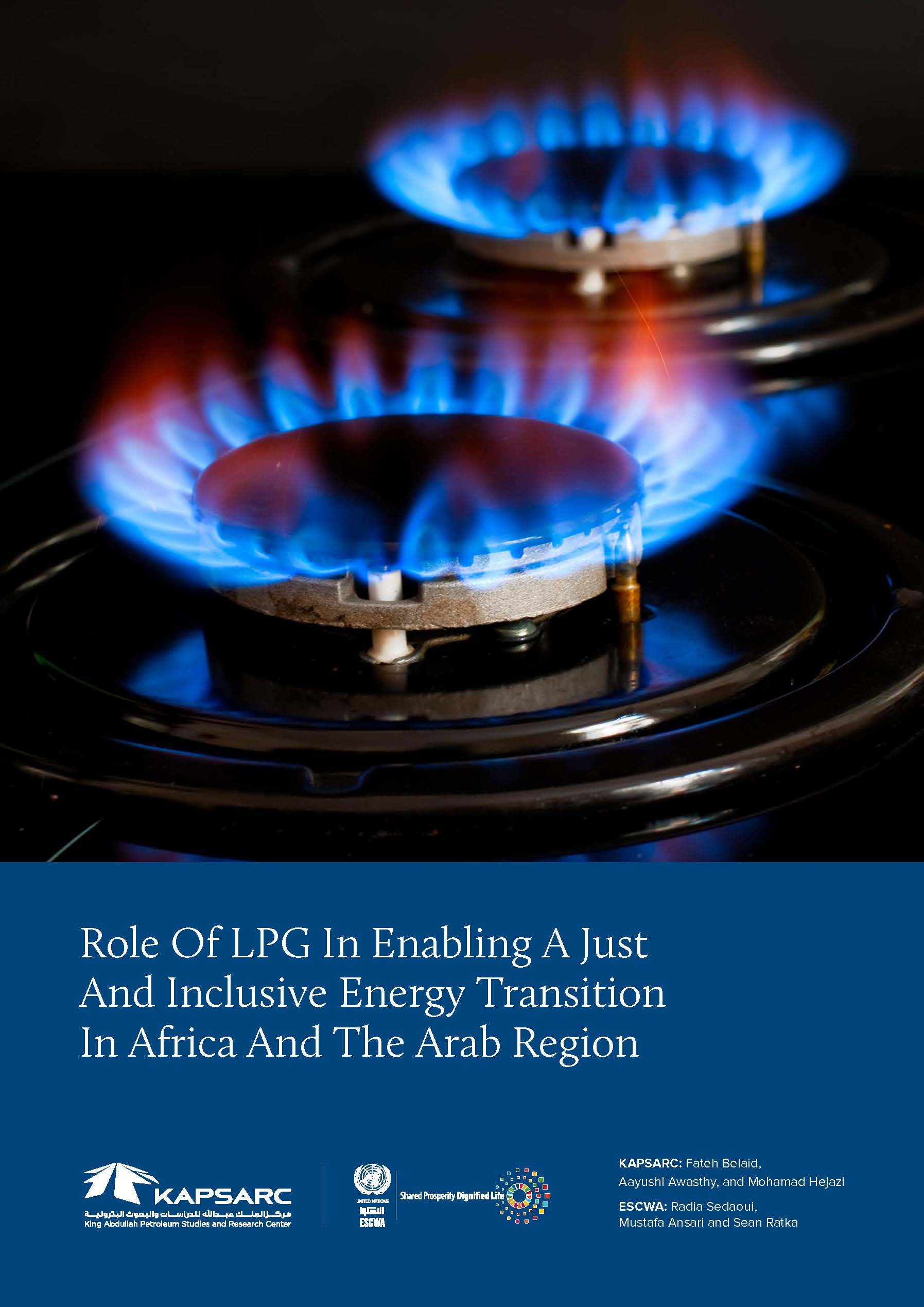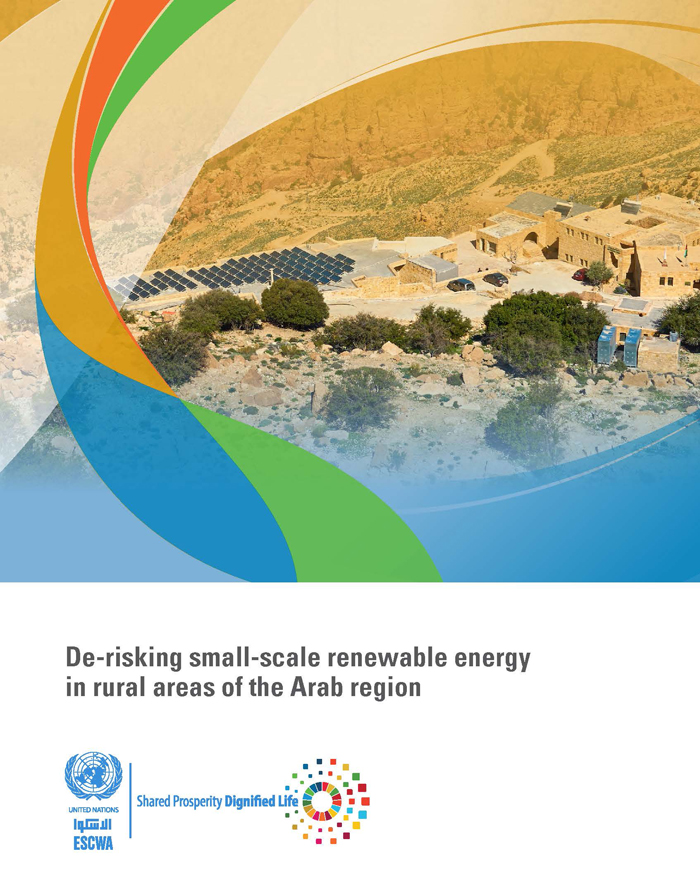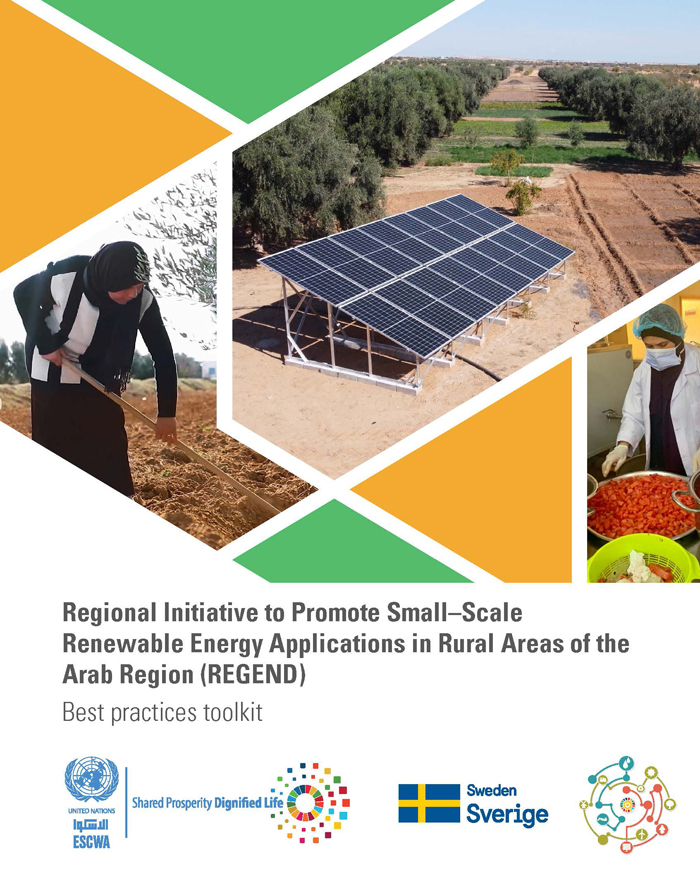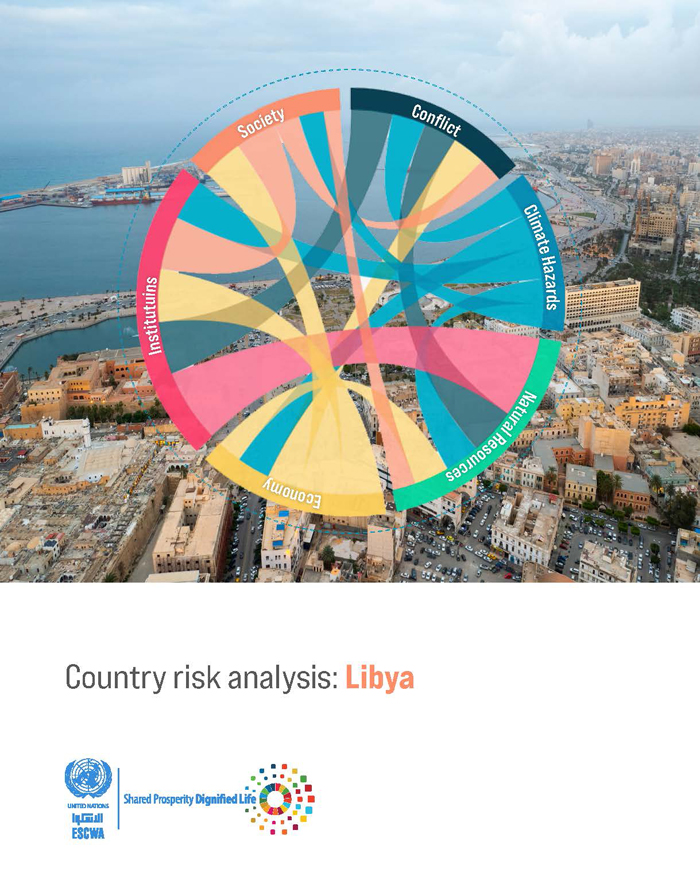
Country: Arab region, Global
Publication Type: Reports & studies
Cluster: Climate Change and Natural Resource Sustainability
Focus Area: Climate change, Natural resource sustainability
Initiatives: Promoting renewable energy investments, Advancing water and food security, Climate Resilience through Regional Cooperation
SDGs: Goal 4: Quality Education, Goal 5: Gender Equality, Goal 7: Affordable and Clean Energy, Goal 13: Climate Action
Keywords: Food preparation, Renewable energy sources, Liquefied petroleum gas, Energy conversion, Medical aspects, Economic aspects, Environmental aspects, Financial aspects, Resources mobilization, Consumer education, Gender, Environmentally sound technology, Costs, Capacity building, Partnership, Case studies, Recommendations, Saudi arabia, Algeria, Nepal, Congo, India, Madagascar, Uganda, Kenya, Arab countries
Role Of LPG In Enabling A Just And Inclusive Energy Transition In Africa And The Arab Region
January 2024
Despite ongoing efforts, the current trajectory towards achieving universal, affordable, and reliable modern energy access faces considerable challenges and is at risk of remaining unmet by 2030. Focusing on countries such as Comoros, Djibouti, Madagascar, Mauritania, Somalia, the Sudan, and Yemen, the report outlines the transformative potential of switching to Liquefied Petroleum Gas (LPG) from traditional fuel methods.
The report emphasises the substantial benefits of LPG, including emission reduction, improved health outcomes, and time savings, particularly for vulnerable populations such as women and children. Recognising the urgent need for a transition, the report underscores the role of strategic financing mechanisms in addressing these challenges.
Prepared by ESCWA and KAPSARC, the report provides insights into the clean cooking landscape, encompassing health, economic, and environmental aspects. It highlights the existing policy framework, finance mobilisation, and the need for a collective and integrated approach to mobilise resources, establish partnerships, ensure regulatory support, and promote capacity building. These critical components are integral to addressing the access deficit in clean cooking, achieving SDG 7 and SDG 13, and contributing significantly to broader sustainable development goals, ensuring that the energy transition is just and inclusive.
Related content
Climate change
, Natural resource sustainability
,
Despite ongoing efforts, the current trajectory towards achieving universal, affordable, and reliable modern energy access faces considerable challenges and is at risk of remaining unmet by 2030. Focusing on countries such as Comoros, Djibouti, Madagascar, Mauritania, Somalia, the Sudan, and Yemen, the report outlines the transformative potential of switching to Liquefied Petroleum Gas (LPG) from traditional fuel methods.
The report emphasises the substantial benefits of LPG, including emission reduction, improved health outcomes, and time savings, particularly for vulnerable populations such as women and children. Recognising the urgent need for a transition, the report underscores the role of strategic financing mechanisms in addressing these challenges.
Prepared by ESCWA and KAPSARC, the report provides insights into the clean cooking landscape, encompassing health, economic, and environmental aspects. It highlights the existing policy framework, finance mobilisation, and the need for a collective and integrated approach to mobilise resources, establish partnerships, ensure regulatory support, and promote capacity building. These critical components are integral to addressing the access deficit in clean cooking, achieving SDG 7 and SDG 13, and contributing significantly to broader sustainable development goals, ensuring that the energy transition is just and inclusive.



